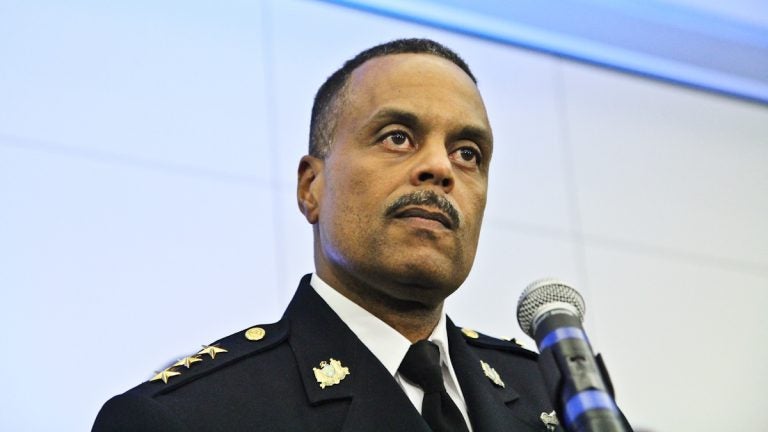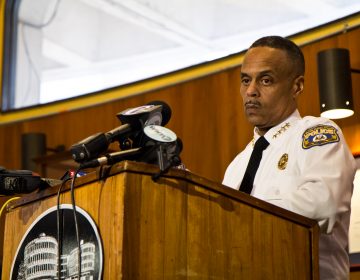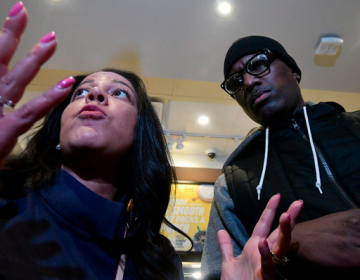Police Commissioner rejects key Starbucks arrest report recommendation
The PPD agrees that anti-racist training could help officers de-escalate conflicts but can’t commit to providing that training.

Philadelphia Police Commissioner Richard Ross (Kimberly Paynter/WHYY)
This article originally appeared on PlanPhilly.
—
The Philadelphia Police Department agrees that anti-racist training could help officers de-escalate conflicts without arrests but can’t commit to providing that training until the department identifies “appropriate funding,” said Commissioner Richard Ross in response to a panel’s review of the high-profile April arrests of two black men at a Center City Starbucks.
The Philadelphia Police Advisory Commission report found that by ignoring the underlying racial implications of the April incident, officers may have missed an opportunity to resolve the situation without making any arrests. The two men, Rashon Nelson and Donte Robinson, were later released from custody without charges.
“PPD should accept that racism has a profound effect on what drives citizen and police contact, and should incorporate consistent, anti-racist practice, incident review and training into the Philadelphia Police Department,” the report stated as its first recommendation.
Ross disagreed with that key finding. He said in a written response that while the department accepts that racism exists and has implemented a number of policies to combat it, “we believe the profound effect on what drives citizen and police contact lies in criminal conduct and victimization.”
Nelson and Robinson were handcuffed and led out of the Starbucks after a white store manager called the police on them because they hadn’t yet made a purchase and refused to leave the store after she confronted them. The two men were waiting to meet someone at the cafe.
Ross said the PPD has a “duty to respond to all calls of service regardless of the motivations of the caller.” He acknowledged that they “also have a duty to ensure they’re not misused or exploited in this process and that individuals aren’t improperly arrested or detained based solely on race or ethnicity.”
The commission’s executive director Hans Menos said police officers wield a lot of power and “need to be extraordinarily aware of the issues of race and racism that are present” when interacting with some citizens.
“It’s about making sure that you understand if a racist motivation is bringing you into a situation,” said Menos.
Philadelphia public school teacher Ismael Jimenez said that relations between police and city residents could be improved by anti-racist training. In June, an on-site security guard at a Cinemark movie theater in West Philadelphia called the police to report a dispute between him and a theater manager. The call resulted in Jimenez being surrounded by six officers — with more on the way, as his wife, a social worker, filmed the confrontation, and his children looked on.
An officer de-escalated the situation, and no arrests were made.
“These conversations should be happening in all fields [about] how folks are orienting themselves dealing within certain areas, with certain populations,” said Jimenez.
Jane Roh, a spokeswoman for City Council President Darrell Clarke, said the report doesn’t focus enough on the people calling the police.
“Individual citizens really do have a responsibility to be careful and cautious and judicious when they call the police,” she said.
She said Clarke “definitely believes the work of anti-bias training by PPD should be constant and part of everyday best practices.”
WHYY is your source for fact-based, in-depth journalism and information. As a nonprofit organization, we rely on financial support from readers like you. Please give today.







